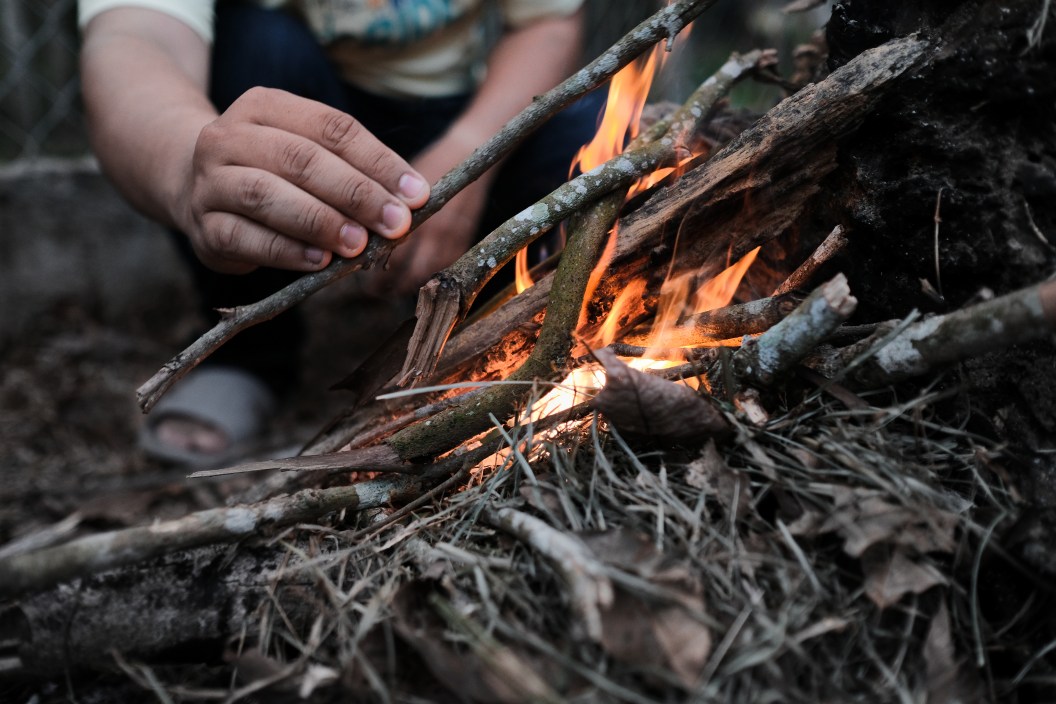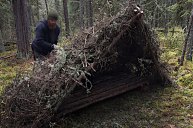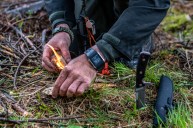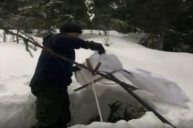When survivalist influencer Saody Dara posted a video of a bushcraft survival shelter he constructed under a rock, he didn't expect to be roasted by his followers.
Rock shelters can offer unparalleled protection from the elements. They create a barrier from wind and rain and can hold heat on the rock's surface. But not all rock formations are created equally in terms of potential wilderness survival shelters. Rock makes a good shelter because it is dense and strong, but for those same reasons, it can also be a liability. If the rock formation is unstable, it could collapse—causing injury or even death.
The survival shelter Dara built included a blazing fire tucked directly underneath the craggy overhang of a large boulder. (Watch the full clip here.) The risk here is that heat from the fire could cause the rock to crack, break apart, or fall down on the shelter's occupants. The likelihood of this happening increases when a large fire has been burning for an extended period of time within the rock shelter. Small, short fires typically don't cause such damage.
Dara's post ignited a lot of disagreement about fire safety in the primitive rock shelter, with many criticizing his choice.
"That's a sure fire way to fracture a boulder," one follower commented.
"Some rocks explode when heated unevenly," another said. "I had it happen when we tried to cook on a rock paid over a fire. It was like a shotgun blast. I don't think this is good or safe. Not to mention the wood and moss so close by."
Still, others came to Dara's defense.
"This technique is good," a follower commented. "And while the fire looks a little big, you can tell they just started it. You want to keep the fire low and coals warm. This way you can heat the rock slowly to reduce the risk of fissures."
"Ya'll really think that small fire can split a rock that size?" commented another.
"Actually yes, if a rain came the sudden (temperature) change and pop," someone else answered. "I've seen at least three-ton rock pop and flake off from this. Better to have the fire outside, with a reflection wall."
Talk about a heated debate! What do you think? Let us know where you stand on the Wide Open Spaces Facebook page.




